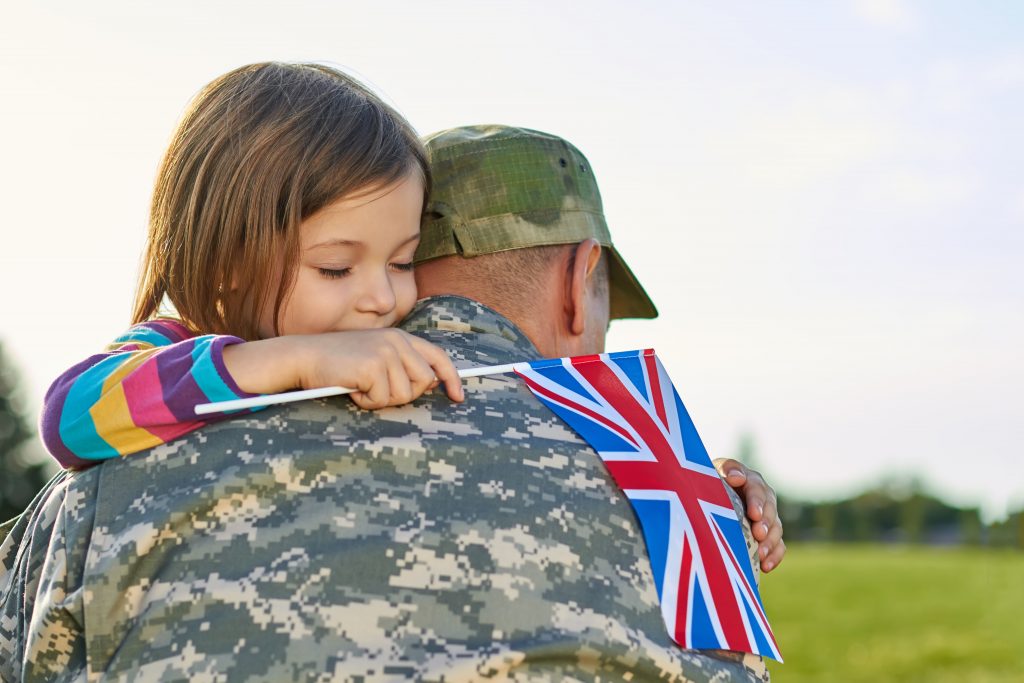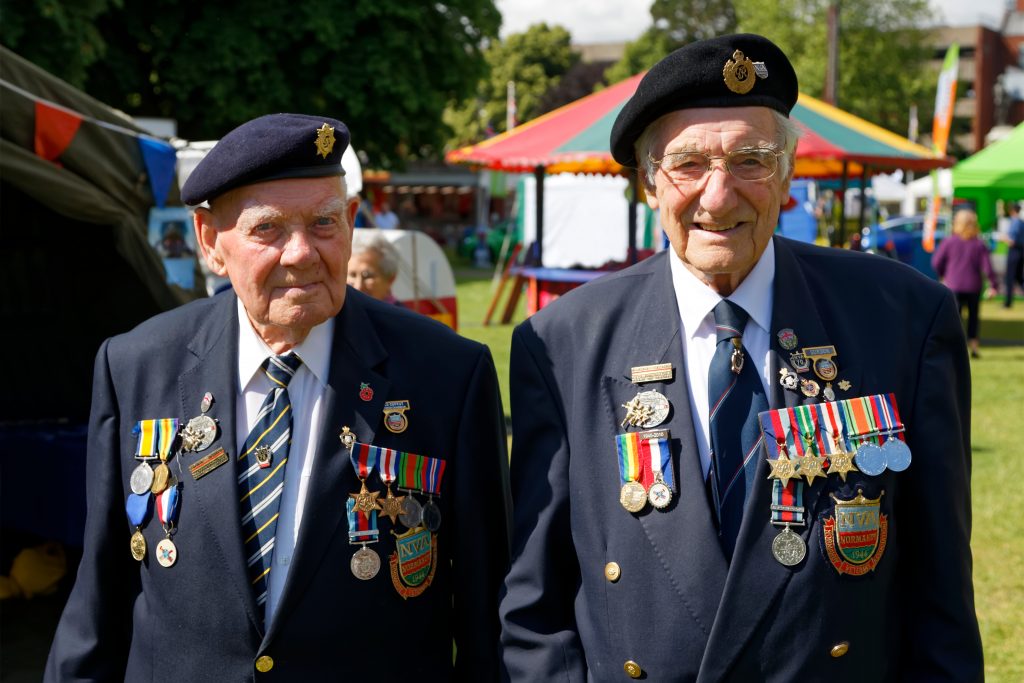Supporting Veterans
Supporting former members of the British Armed Forces and their families.
Access to NHS services and specialist support
More than 2.4 million people have previously served in the British Armed Forces.
Former members of the British Armed Forces should not be disadvantaged in accessing NHS healthcare or getting any specialist support they may need.
Who is a Veteran?
A veteran is anyone who has served one day in the British Armed Forces.
Every year, 18,000 service people leave the military and return to civilian life, including 2,500 who leave on medical grounds.
As well as the 2.4 million veterans in the UK, there are 5.4 million spouses, partners, widowers and child dependents.

Meeting Your Needs
People who served in the Armed Forces can have the same health problems as anyone else, but they may encounter more specific problems as a direct result of their service.
The Armed Forces Covenant promises that those who served in the military and their families be treated with fairness and respect in our communities and when using public services, and that we understand potential health problems the veteran community might experience. It is built into the NHS constitution and says specifically that:
- Military veterans and their families must not be disadvantaged when accessing NHS services
- Veterans will receive priority treatment when injuries or health problems occur in service
- Family members’ places on NHS waiting lists will be kept in the event of needing to move due to redeployment
All GP practices in Gosforth and Jesmond are fully accredited as Veteran Friendly, and we will do our utmost to fulfil our side of the Armed Forces Covenant.
Mental Health
UK veterans who have served during recent military operations are more likely to have mental health issues and suffer for longer before getting help.
Across the wider population, 16% of people have common mental health disorders like stress, anxiety or depression. In veterans, this figure is 23% – nearly 1 in 4.
Cases of Post-Traumatic Stress Disorder – PTSD – are also much higher. It’s around five per cent in the general population, but with veterans, it ranges from eight per cent up to 17% for those who were deployed in combat roles in Iraq and Afghanistan.
Alcohol misuse is twice as high in veterans – 1 in 10 former armed forces members as opposed to 1 in 20 across the country.
The risk of developing mental health problems is increased by both the nature of serving – relinquishing civil liberties and putting themselves in harm’s way – as well as the difficulties veterans can face in readjusting to civilian life.
On average, it takes veterans four years to come forward for mental health support.
Long-term Health or Disability
More than half of veterans (52%) have a long-term illness or disability.
This is considerably higher than the thirty-five per cent of the general adult population in the UK who have long-term conditions or disabilities.
Injuries or health problems that are attributable or partially attributable to a person’s military service should be given priority for care and treatment under the terms of the Armed Forces Covenant.
Of the 2,500 people who leave the military every year due to health grounds, the most common physical issues affect the back, knees and hearing.
Specialist Support Services
There is a range of specialist support services available to help military veterans and their families.
They include Op COURAGE, the specialist NHS mental health service for veterans and Op RESTORE, the physical health and wellbeing service.
Follow the links from the sections below to find out more about their services.
Op COURAGE
Op COURAGE: The Veterans Mental Health and Wellbeing Service is an NHS mental health specialist service designed to help serving personnel due to leave the military, reservists, armed forces veterans and their families.

Op RESTORE
Op RESTORE: The Veterans Physical Health and Wellbeing Service is an NHS service that provides specialist care and treatment to veterans who have physical health problems as a result of their time in the Armed Forces.

Guide for Service Leavers
The NHS website has a step-by-step guide for service leavers.
It includes details on arranging continuing treatment, and helping your GP get your full military medical records.
Veterans’ Gateway
A consortium of organisations and Armed Forces charities, including The Royal British Legion, SSAFA, Combat Stress and Connect Assist
Help for Heroes
Help for Heroes provides direct, practical support for wounded, injured and sick service personnel, veterans and their loved ones from any conflict.
Veterans Welfare Service
The Veterans Welfare Service (VWS) provides 1-to-1 support to all veterans, their families and carers.
It’s run by Veterans UK, which is part of the Ministry of Defence (MoD).
Combat Stress
Combat Stress is the UK’s leading mental health charity for veterans. It provides free specialised clinical treatment and support to ex-servicemen and women across the UK with mental health conditions.
Blesma
Blesma supports limbless veterans to lead independent and fulfilling lives. Blesma is dedicated to assisting serving and ex-service men and women who have suffered life-changing limb loss or the use of a limb, an eye or loss of sight.
Your Health Records
As with every patient, if the people involved in your care know important information about you, the better they can help.
The very first thing is for GP practices to know that you have served in the military.
If you weren’t asked about your previous services when you registered as a patient, you can fill in a quick form to let us know.
Veteran Status
When you registered with your GP you might have been asked if you have ever been a member UK Armed Forces or do they have a family member registered with the Defence Medical Services.
If you said you were, then this information should be on your patient record, but you can easily check by contacting us.
When you left the military, you will have been given a copy of your summary medical record.
This will give us information on how to access your full service record, if we need it.
The NHS has step-by-step guide for service leavers which gives more details.
Understanding your Experiences
We know that your experiences in the armed forces can significantly impact the health care you need.
As an accredited veteran-friendly GP practice, we know it might impact how you want us to talk to you about your health care.
If there are things we can do to make accessing our services easier for you – including parts of your military history you do not want to talk about – then please let a member of staff know, and we can ensure this is made clear to all members of staff.
Ensuring you are able to access healthcare equally and without being disadvantaged is protected by the Armed Forces Covenant and the NHS Consitution.
